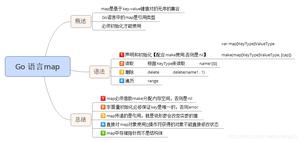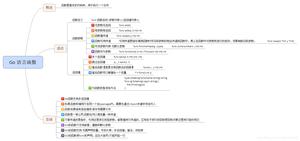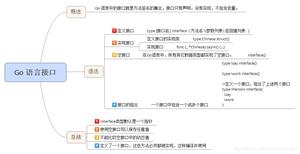Python10.完整的语法规范

这是完整的Python语法,它被送入解析器生成器,以生成解析Python源文件的解析器:
# Grammar for Python# NOTE WELL: You should also follow all the steps listed at
# https://devguide.python.org/grammar/
# Start symbols for the grammar:
# single_input is a single interactive statement;
# file_input is a module or sequence of commands read from an input file;
# eval_input is the input for the eval() functions.
# NB: compound_stmt in single_input is followed by extra NEWLINE!
single_input:NEWLINE|simple_stmt|compound_stmtNEWLINE
file_input:(NEWLINE|stmt)*ENDMARKER
eval_input:testlistNEWLINE*ENDMARKER
decorator:'@'dotted_name['('[arglist]')']NEWLINE
decorators:decorator+
decorated:decorators(classdef|funcdef|async_funcdef)
async_funcdef:'async'funcdef
funcdef:'def'NAMEparameters['->'test]':'suite
parameters:'('[typedargslist]')'
typedargslist:(tfpdef['='test](','tfpdef['='test])*[','[
'*'[tfpdef](','tfpdef['='test])*[','['**'tfpdef[',']]]
|'**'tfpdef[',']]]
|'*'[tfpdef](','tfpdef['='test])*[','['**'tfpdef[',']]]
|'**'tfpdef[','])
tfpdef:NAME[':'test]
varargslist:(vfpdef['='test](','vfpdef['='test])*[','[
'*'[vfpdef](','vfpdef['='test])*[','['**'vfpdef[',']]]
|'**'vfpdef[',']]]
|'*'[vfpdef](','vfpdef['='test])*[','['**'vfpdef[',']]]
|'**'vfpdef[',']
)
vfpdef:NAME
stmt:simple_stmt|compound_stmt
simple_stmt:small_stmt(';'small_stmt)*[';']NEWLINE
small_stmt:(expr_stmt|del_stmt|pass_stmt|flow_stmt|
import_stmt|global_stmt|nonlocal_stmt|assert_stmt)
expr_stmt:testlist_star_expr(annassign|augassign(yield_expr|testlist)|
('='(yield_expr|testlist_star_expr))*)
annassign:':'test['='test]
testlist_star_expr:(test|star_expr)(','(test|star_expr))*[',']
augassign:('+='|'-='|'*='|'@='|'/='|'%='|'&='|'|='|'^='|
'<<='|'>>='|'**='|'//=')
# For normal and annotated assignments, additional restrictions enforced by the interpreter
del_stmt:'del'exprlist
pass_stmt:'pass'
flow_stmt:break_stmt|continue_stmt|return_stmt|raise_stmt|yield_stmt
break_stmt:'break'
continue_stmt:'continue'
return_stmt:'return'[testlist]
yield_stmt:yield_expr
raise_stmt:'raise'[test['from'test]]
import_stmt:import_name|import_from
import_name:'import'dotted_as_names
# note below: the ('.' | '...') is necessary because '...' is tokenized as ELLIPSIS
import_from:('from'(('.'|'...')*dotted_name|('.'|'...')+)
'import'('*'|'('import_as_names')'|import_as_names))
import_as_name:NAME['as'NAME]
dotted_as_name:dotted_name['as'NAME]
import_as_names:import_as_name(','import_as_name)*[',']
dotted_as_names:dotted_as_name(','dotted_as_name)*
dotted_name:NAME('.'NAME)*
global_stmt:'global'NAME(','NAME)*
nonlocal_stmt:'nonlocal'NAME(','NAME)*
assert_stmt:'assert'test[','test]
compound_stmt:if_stmt|while_stmt|for_stmt|try_stmt|with_stmt|funcdef|classdef|decorated|async_stmt
async_stmt:'async'(funcdef|with_stmt|for_stmt)
if_stmt:'if'test':'suite('elif'test':'suite)*['else'':'suite]
while_stmt:'while'test':'suite['else'':'suite]
for_stmt:'for'exprlist'in'testlist':'suite['else'':'suite]
try_stmt:('try'':'suite
((except_clause':'suite)+
['else'':'suite]
['finally'':'suite]|
'finally'':'suite))
with_stmt:'with'with_item(','with_item)*':'suite
with_item:test['as'expr]
# NB compile.c makes sure that the default except clause is last
except_clause:'except'[test['as'NAME]]
suite:simple_stmt|NEWLINEINDENTstmt+DEDENT
test:or_test['if'or_test'else'test]|lambdef
test_nocond:or_test|lambdef_nocond
lambdef:'lambda'[varargslist]':'test
lambdef_nocond:'lambda'[varargslist]':'test_nocond
or_test:and_test('or'and_test)*
and_test:not_test('and'not_test)*
not_test:'not'not_test|comparison
comparison:expr(comp_opexpr)*
# <> isn't actually a valid comparison operator in Python. It's here for the
# sake of a __future__ import described in PEP 401 (which really works :-)
comp_op:'<'|'>'|'=='|'>='|'<='|'<>'|'!='|'in'|'not''in'|'is'|'is''not'
star_expr:'*'expr
expr:xor_expr('|'xor_expr)*
xor_expr:and_expr('^'and_expr)*
and_expr:shift_expr('&'shift_expr)*
shift_expr:arith_expr(('<<'|'>>')arith_expr)*
arith_expr:term(('+'|'-')term)*
term:factor(('*'|'@'|'/'|'%'|'//')factor)*
factor:('+'|'-'|'~')factor|power
power:atom_expr['**'factor]
atom_expr:['await']atomtrailer*
atom:('('[yield_expr|testlist_comp]')'|
'['[testlist_comp]']'|
'{'[dictorsetmaker]'}'|
NAME|NUMBER|STRING+|'...'|'None'|'True'|'False')
testlist_comp:(test|star_expr)(comp_for|(','(test|star_expr))*[','])
trailer:'('[arglist]')'|'['subscriptlist']'|'.'NAME
subscriptlist:subscript(','subscript)*[',']
subscript:test|[test]':'[test][sliceop]
sliceop:':'[test]
exprlist:(expr|star_expr)(','(expr|star_expr))*[',']
testlist:test(','test)*[',']
dictorsetmaker:(((test':'test|'**'expr)
(comp_for|(','(test':'test|'**'expr))*[',']))|
((test|star_expr)
(comp_for|(','(test|star_expr))*[','])))
classdef:'class'NAME['('[arglist]')']':'suite
arglist:argument(','argument)*[',']
# The reason that keywords are test nodes instead of NAME is that using NAME
# results in an ambiguity. ast.c makes sure it's a NAME.
# "test '=' test" is really "keyword '=' test", but we have no such token.
# These need to be in a single rule to avoid grammar that is ambiguous
# to our LL(1) parser. Even though 'test' includes '*expr' in star_expr,
# we explicitly match '*' here, too, to give it proper precedence.
# Illegal combinations and orderings are blocked in ast.c:
# multiple (test comp_for) arguments are blocked; keyword unpackings
# that precede iterable unpackings are blocked; etc.
argument:(test[comp_for]|
test'='test|
'**'test|
'*'test)
comp_iter:comp_for|comp_if
sync_comp_for:'for'exprlist'in'or_test[comp_iter]
comp_for:['async']sync_comp_for
comp_if:'if'test_nocond[comp_iter]
# not used in grammar, but may appear in "node" passed from Parser to Compiler
encoding_decl:NAME
yield_expr:'yield'[yield_arg]
yield_arg:'from'test|testlist
以上是 Python10.完整的语法规范 的全部内容, 来源链接: utcz.com/z/508455.html





